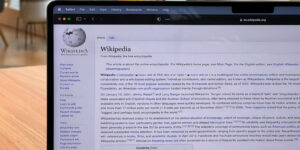Obama Calls Out ‘Serious’ Christians for ‘Us Versus Them’ Mentality
Christians in the United States have an “us versus them” mentality and are inherently suspicious, or so Barack Obama ponders in a new interview.
The president sat down with Gilead author Marilynne Robinson in a roles-reversed interview in which Obama asked the questions. Robinson’s novel delves into the spiritual battles facing America through the eyes of a Midwestern pastor.
In light of attacks on religious freedom across the country as well as the murder of Christians in Oregon, the president asked the author about a believer’s role in democracy: “But you’ve struggled with the fact that here in the United States, sometimes Christian interpretation (of democracy) seems to posit an ‘us versus them,'” Obama says.
“How do you reconcile the idea of faith being really important to you and you caring a lot about taking faith seriously with the fact that, at least in our democracy and our civic discourse, it seems as if folks who take religion the most seriously sometimes are also those who are suspicious of those not like them?”
But inherent Christian values are under fire, even in the land of the free: Gay couples sue private businesses for refusing products so frequently lawmakers scramble to protect religious rights.
Doctors lose their jobs for speaking out, and atheist groups harass schools and teachers into bowing to an anti-God agenda.
According to Robinson, though, those who take their faith seriously should be ready to encounter difficulty.
“I mean, when people are turning in on themselves—and God knows, arming themselves and so on—against the imagined other, they’re not taking their Christianity seriously,” Robinson says. “I don’t know—I mean, this has happened over and over again in the history of Christianity, there’s no question about that, or other religions, as we know. But Christianity is profoundly counterintuitive—’Love thy neighbor as thyself’—which I think properly understood means your neighbor is as worthy of love as you are, not that you’re actually going to be capable of this sort of superhuman feat. But you’re supposed to run against the grain. It’s supposed to be difficult. It’s supposed to be a challenge.”
For Robinson, it appears as if vocal Christianity has no place in the public square.
“Well, I believe that people are images of God,” she tells Obama. “There’s no alternative that is theologically respectable to treating people in terms of that understanding. What can I say? It seems to me as if democracy is the logical, the inevitable consequence of this kind of religious humanism at its highest level. And it (applies) to everyone. It’s the human image. It’s not any loyalty or tradition or anything else; it’s being human that enlists the respect, the love of God being implied in it.”
But according to Emory University Law Professor John Witte, Christianity and democracy complement and challenge each other.
“Christianity provides democracy with a system of beliefs that integrates its concerns for liberty and responsibility, individuality and community,” Witte writes. “Democracy’s commitment to religious freedom opens new opportunities to Christianity and challenges the church to extend its mission and ministry. Democracy’s commitment to religious equality forces Christianity to stand on its own feet and on an equal footing with all other religions.”
But is it really “equal footing” when Christian persecution is largely ignored, and when it’s brought to the spotlight, the president himself calls them “suspicious”?



























































